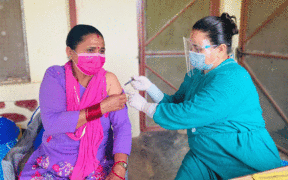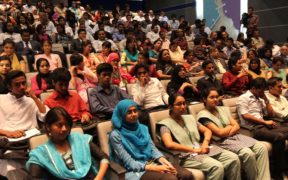Tag:
knowledge marketing

How do common web user behaviors affect how people find and absorb knowledge? What did Knowledge SUCCESS learn from developing an interactive website feature presenting complex family planning data? How can you apply these learnings in your own work? This post recaps a May 2022 webinar with three sections: Online Behaviors and Why They Matter; Case Study: Connecting the Dot; and a Skill Shot: Developing Visual Content for the Web.

Knowledge Management Champions play an important role in change management for family planning and reproductive health (FP/RH) programs. Also known as KM Champions, Knowledge Activists, or Knowledge Coordinators, they are not knowledge managers but part-time volunteer knowledge change agents—facilitating knowledge acquisitions from knowledge innovators and enabling the sharing and effective utilization of such knowledge.

The EAST framework, developed by the Behavioural Insights Team (BIT), is a notable and well-used behavioral science framework that FP/RH programs can use to overcome common biases in knowledge management for FP/RH professionals. EAST stands for “easy, attractive, social, and timely”—four principles that Knowledge SUCCESS as it designs and implements knowledge management activities to get the latest evidence and best practices into FP/RH programs around the world.

FP/RH community members can’t always attend the many interesting webinars offered every week or watch a full recording afterward. With many people preferring to consume information in a written format over watching a recording, webinar recaps are a quick knowledge management solution to address this challenge.

Over the last several years, Knowledge SUCCESS’s resources have gained traction in the Asia-Pacific region. These USAID family planning priority countries have shown progress and commitment to improving family planning services. However, persistent challenges remain.

Maryam Yusuf, an Associate with Busara Center for Behavioral Economics, shares research on cognitive overload and choice overload, offers insights from co-creation workshops, and suggests considerations for sharing information without overwhelming audiences.

Our Communications and Digital Strategy Team Leads explain how the private sector inspired a new approach to sharing tools and resources with the family planning community.













